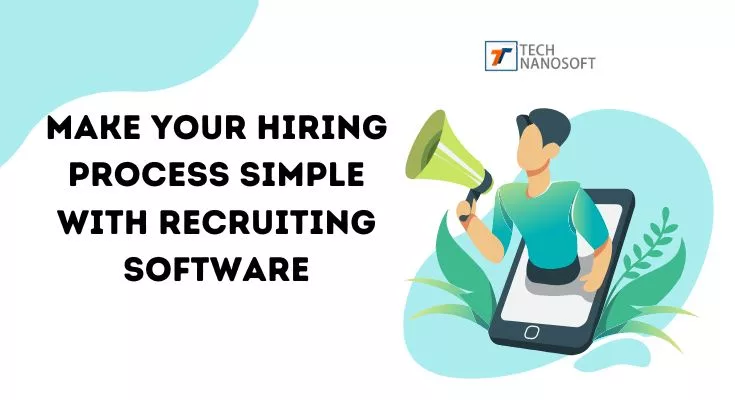Know About The 5 Tips To Extract The Value From Data

The market for data-driven marketing technologies is growing rapidly: What should companies pay attention to in their MarTech strategy? and how they can use tips to extract the value from data?
In today’s marketing landscape, the focus is on the added value of data through technology. Especially since new digital formats open up more and more possibilities for data-driven marketing.
Determining the right mix of MarTech solutions is no easy task. With the raging data tsunami, it is essential to keep an eye on your goals.
The right data strategy, trust in technologies and consistent implementation are decisive for a sustainable MarTech investment.
Companies need to know their assets and goals – especially in industries that are constantly on the move. The following five tips or tips to extract the value from data are intended to serve as a guide and provide support for the development of a data protection-compliant and intelligent data strategy in order to ensure the long-term growth of companies:
Status quo – comparison with company goals!
Companies are fueled by data. They are not just assets. Data is there to be activated and used intelligently. The MarTech-Stack is the engine – it’s all about high speed, maximum performance with efficient use of fuel.
Often companies are stuck with or stuck with routines. Or there is a fear that too many different technologies are already being used – is the stack (still) efficient at all?
Are all components still being used at all? Are some of them superfluous, outdated or no longer fit with the strategy? A detailed inventory is therefore paramount.
Once the internal assets have been analyzed and compared with the strategic corporate goals, a roadmap can be developed on this basis, which is perfectly aligned with the company.
The world of data-driven marketing is constantly changing and subject to rapid changes. Checking the performance of the tech stack at regular intervals and comparing it with current company goals pays off.
Solid MarTech strategy
Many companies feel they are faced with a “chicken and egg” problem. Investing in a long-term and sustainable MarTech strategy is cost-intensive.
On the one hand there is a need to invest, at the same time the sales targets have to be achieved.
It is therefore advisable to include all stakeholders in the decision-making process and to convince them of the efficiency and advantages of marketing technologies.
Without a sustainable and transparent MarTech strategy, sales can hardly be increased and at best stagnate. The high investment costs in a future-proof and sustainable MarTech strategy are paying off.
For the evaluation of solutions as well as for a perfect interaction in the tech stack, it is advisable to work together with technology partners with extensive specialist knowledge and data expertise.
It pays to invest in the right places to drive business growth.
Data culture – information distribution in the company!
Where there is an abundance of data, there can still be a lack of information. Organizations need to ensure that their tech stack integrations are seamless and intact.
Faulty integrations mean that the platforms do not communicate properly with one another, information is not passed on and there are delays in business processes.
If the data concept is not properly thought out, the data often lies idle in silos. In order to use the data effectively, the silos must be broken down. The different teams and departments must not be fragmented.
Only then is the exchange between CRM and marketing teams, data scientists, media agencies and partners possible. It must be firmly anchored in the data culture of companies that the data is used across the board.
Data protection regulation – part of the data strategy!
In order to guarantee data protection, an approach that takes several approaches into account is recommended.
Audits, assessments, technical implementation, integration or ongoing management are part of the data strategy from the start: who works with whom, in which context, to whom which data belongs.
Only when companies understand the architecture of their tech stacks can they decide who is responsible for which data.
This is the only way for companies to maintain control and tips to extract the value from data actually comply with data protection regulations.
Cooperation with auditors in setting up the data strategy offers companies certain advantages. This ensures that data and its processing are protected across the entire data journey.
The complexity of AdTech is that many providers interpret the GDPR differently. It is therefore becoming more and more important for companies to know the data protection guidelines of their partners.
MarTech expertise – support from specialists!
DataTech specialists can support companies in recognizing their assets and deriving the appropriate data architecture. In order to optimally exploit the potential and opportunities, all data sources must be fully evaluated and segmented.
With a view to the future in particular, it is not enough to just keep an eye on the target groups. Contextual Intelligence will offer companies new possibilities and opportunities to successfully generate new customers without third party data.
The current transformation of digital marketing requires extensive data knowledge and extensive MarTech expertise. Future-oriented companies should get the expertise and know-how of specialists in-house,
Eight years ago there were around 150 MarTech providers – today there are well over 7,000, according to Aline Zenses, Managing Director for Northern Europe at Silverbullet: “Companies recognize good marketing expertise by the fact that professional advice about the simple” what “and” how ” go out.
Companies should be accompanied during activation, implementation and the ongoing management process. You need practical specialist knowledge from experienced experts who, on the one hand, are familiar with the current state of marketing technologies and, on the other hand, can advise companies on the important developments of the future.
With these prerequisites, companies lay the foundation for an optimal interaction of their technologies, without wastage, and get the most out of their data. “






